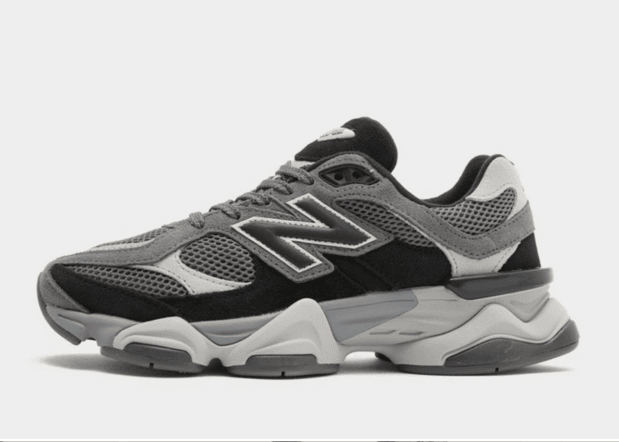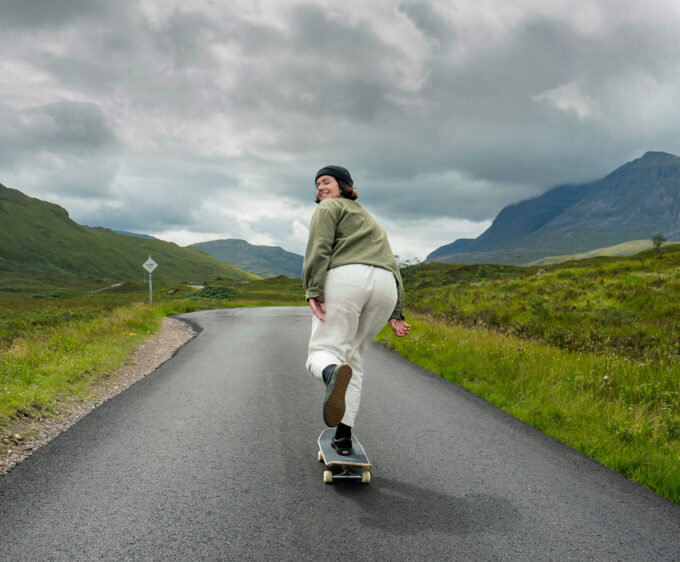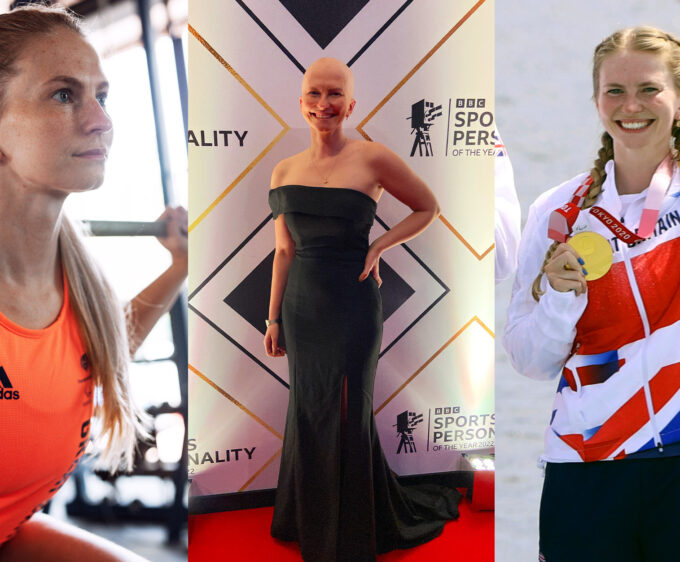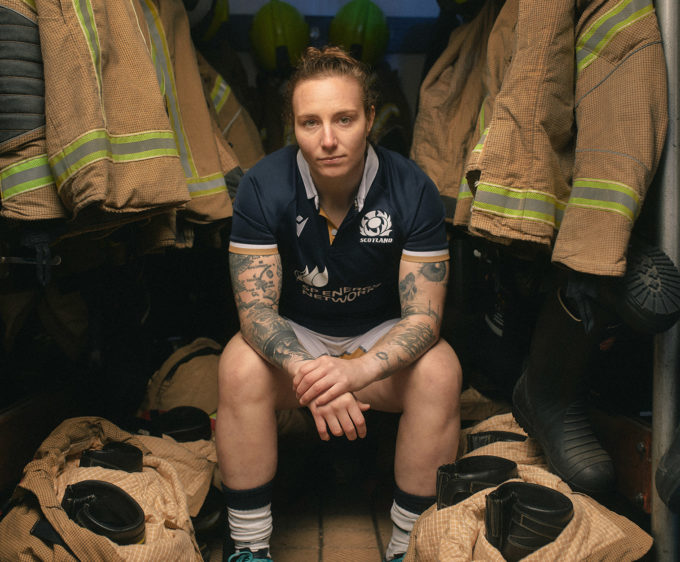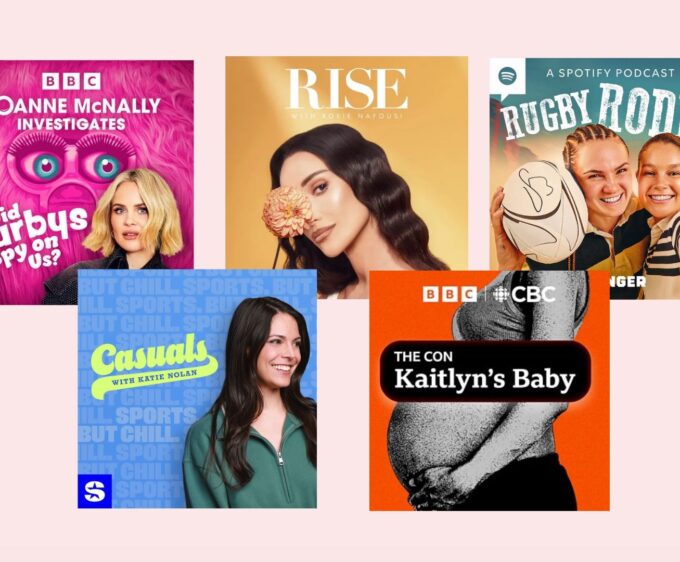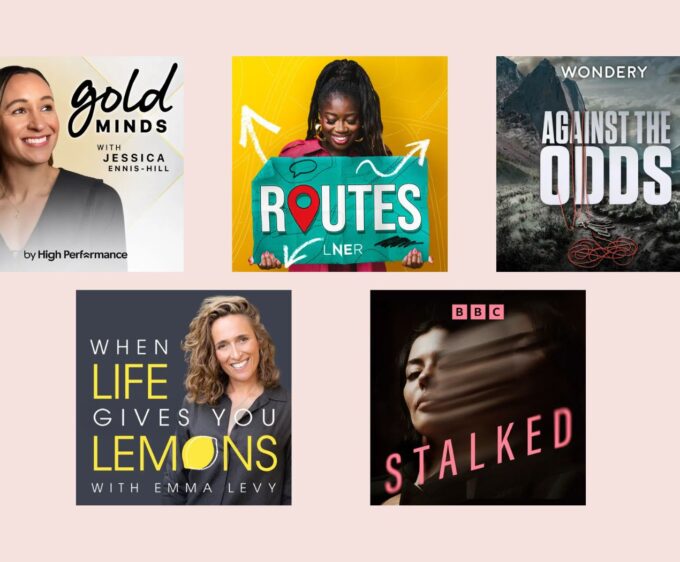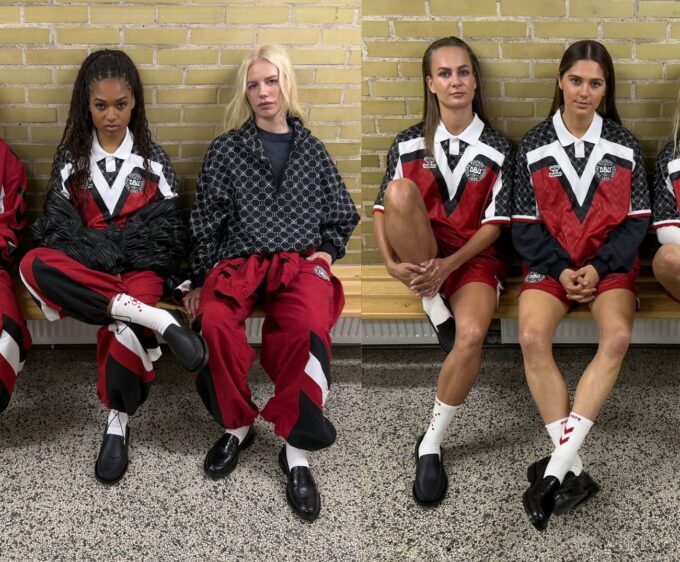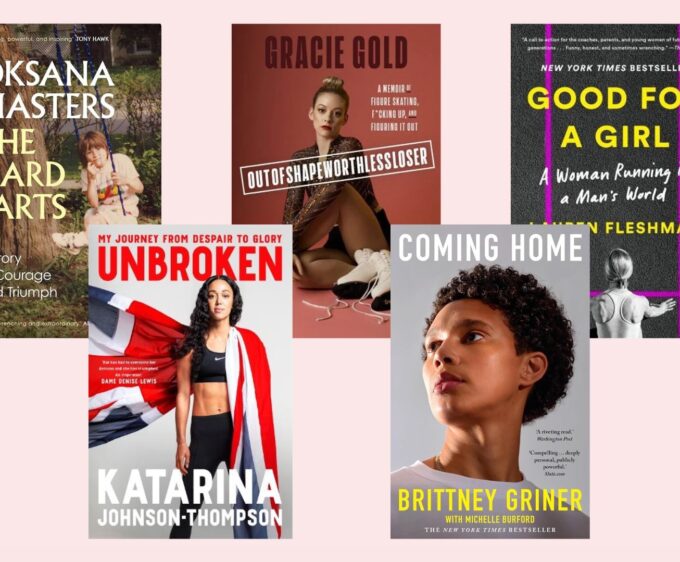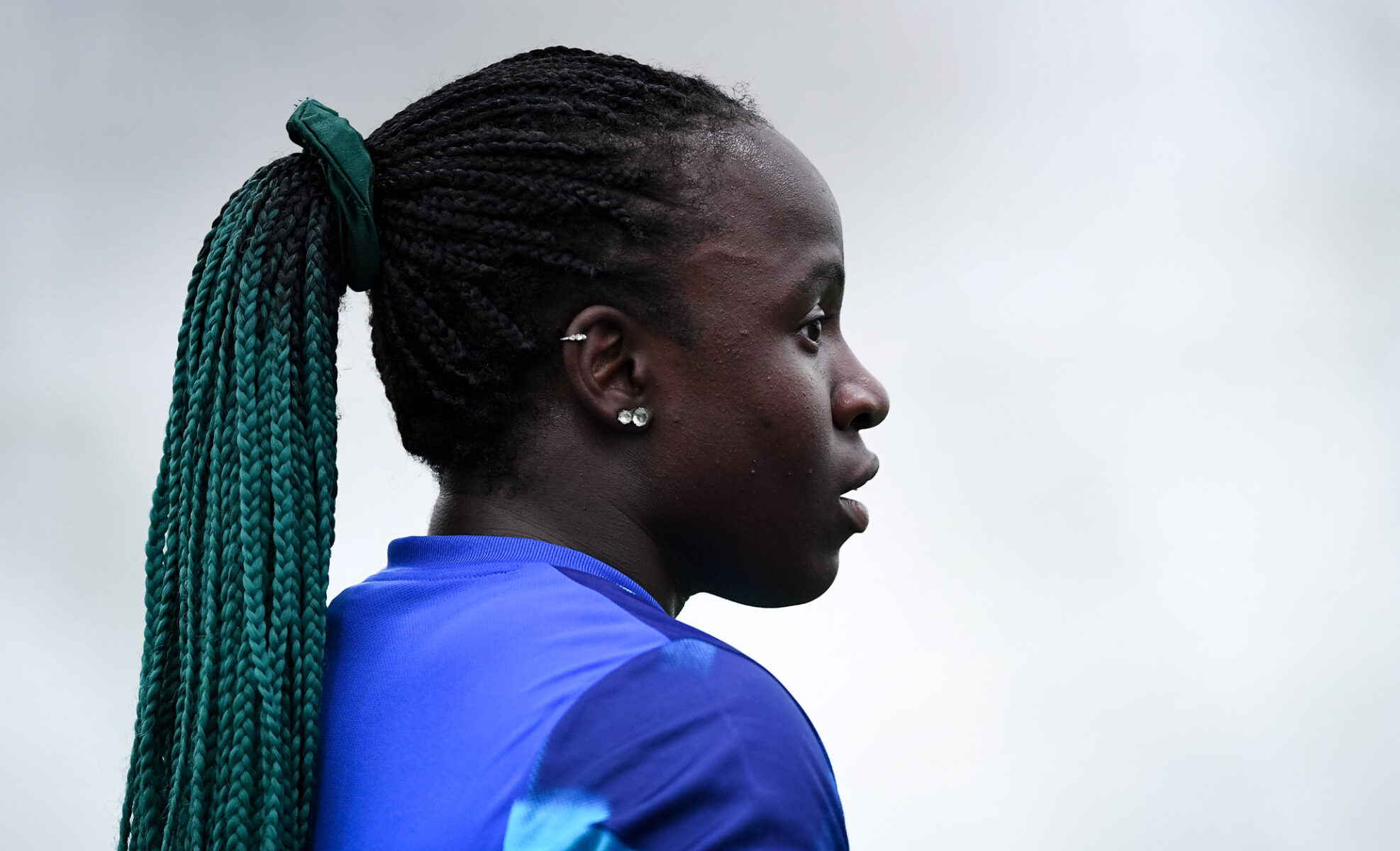
Simi Pam On Sport Vs Hair
Rugby player Simi Pam was left with no choice but to cut off her hair. In Simi’s own words she raises the important issue that Black women face, and how their hair will often deter them from playing sport
By Simi Pam
In our opening match of the 2022/23 season, we beat Sale Sharks Women 48-7. It was a great start, and I was looking forward to seeing the action shots from the game. I’m usually left in awe of the strength, aggression and passion that photographers capture through their lens, but for the first time in my rugby career, the photos from the match left me heartbroken. I could not look past the state of my hair, and it was not because my hair looked unruly from the exertion of the match, but because all I could see when I looked at myself was the damage to my hair. Damage that had resulted from my athletic lifestyle, and to my dismay, it had gotten so bad I could not hide or deny it any longer. The day I saw those match day photos was the day I realised I needed to cut off my hair.
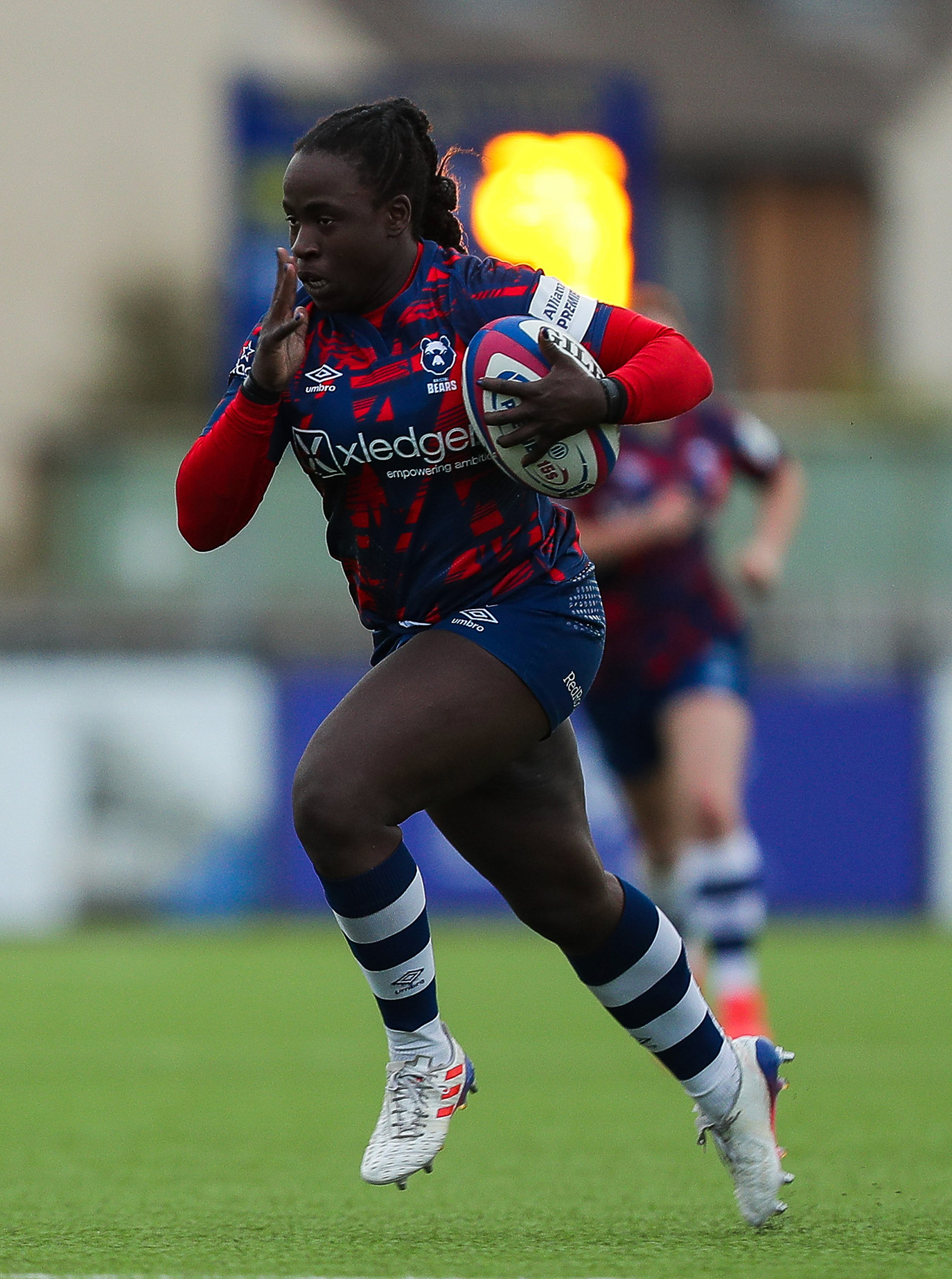
My name is Simi Pam, and I am a semi-professional rugby player for Bristol Bears Women. I juggle my life as a loosehead prop and working as a junior doctor in the NHS. My life is incredibly hectic at the best of times, but it’s worth it because I love being an athlete. Sport has been my life for as long as I can remember. I was born in Nigeria but at the age of three, my parents and I migrated to the UK. Despite hardly speaking a word of English, my parents were keen to immerse me into British culture and they used sport as a vehicle to do this. I was fortunate that my parents afforded me (and my three younger siblings) the opportunity to play any and every sport that we wanted to, something that I am eternally grateful to them for. I swam, did ballet, played tennis, did gymnastics, competed in track and field, the list goes on and on. Sport has always given me a sense of purpose and belonging, as well as being an endless source of enjoyment. Even after all these years, sport continues to give me so much, and I can confidently say that I would not be where I am now without its influence.
Rugby was not a sport that I was exposed to as a child. It would take me until my fifth year of university to find rugby, but from the moment I played my first match for the university 3XV’s team in December 2017, I fell completely in love with the sport. In the five years since first picking up a ball, I am now into my fifth season as a Bristol Bears player, have played at Twickenham for the Barbarians in front of almost 30,000 fans, and I have been part of countless commercial opportunities stemming from the exposure I have received since becoming a rugby player (including modelling for brands such as Gymshark).
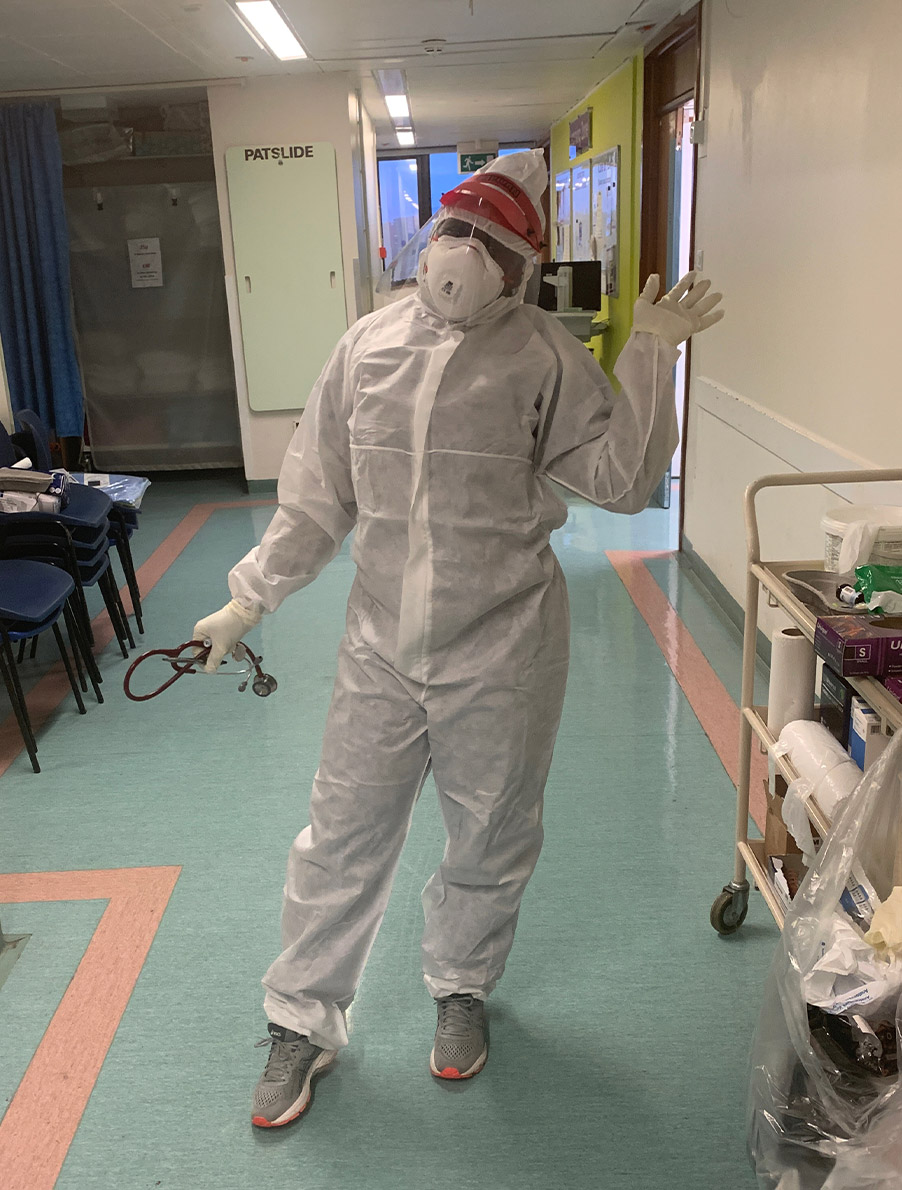
Sport has given me so much, which is why I am passionate about inspiring the next generation to take it up. Over the years I have noticed that there are not many players in either the men’s or women’s game who look like me. We live in an incredibly diverse society, but this is not reflected in the game of rugby union both at grassroots and international level. Why is that? Historically, rugby union was a sport reserved for middle and upper class white private schooled men, but this is evolving with rugby becoming increasingly accessible to all classes. Nevertheless, the proportion of Black people playing the sport is still low in comparison to the percentage of Black people we see playing sports such as football, or in athletics, and this is even lower when we look at women’s rugby. So, what is it that is stopping Black women from playing rugby? One of the barriers to participation in my opinion, is hair.
The relationship that Black women face with their hair is complex and is underpinned unfortunately by negative stereotypes, microaggressions, and in some instances overt racism. As a community, we are told in no uncertain terms that our natural hair is not good enough; it’s not beautiful, it’s undesirable and it’s unprofessional. We have all seen the news stories of children being sent home from school for breaching school uniform policy by wearing their natural hair, or Black women being told that their afro is not suitable for the workplace. It is an endless cycle which results in Black women loathing their natural hair and feeling forced to conform to a Eurocentric standard of beauty. As a result, we spend a lot of thought, time and money on hairstyles that comply with this aesthetic to make our appearance more “acceptable.” Because of this, we commonly try to avoid activities that will compromise the longevity of these hairstyles, including sport and exercise.
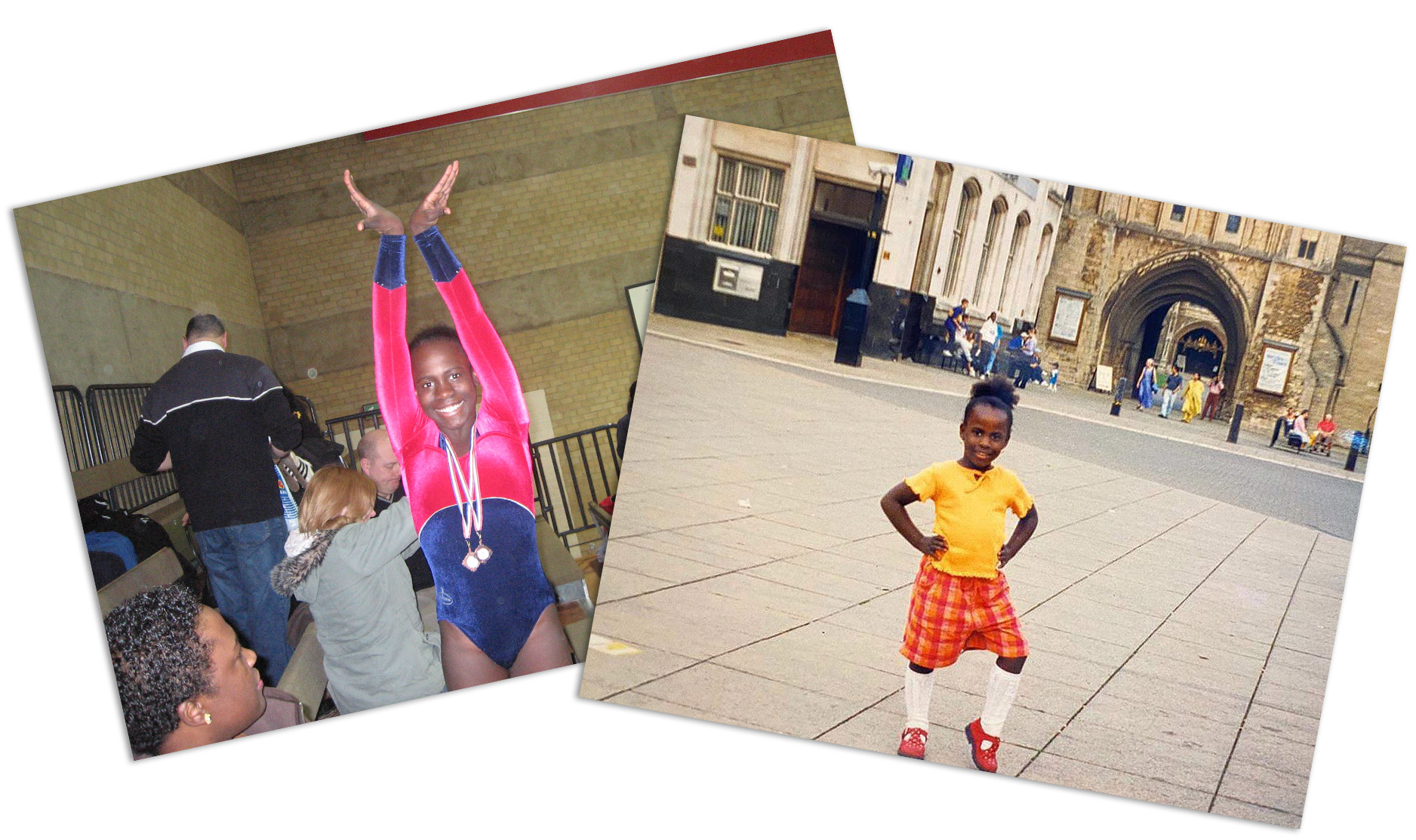
empowered
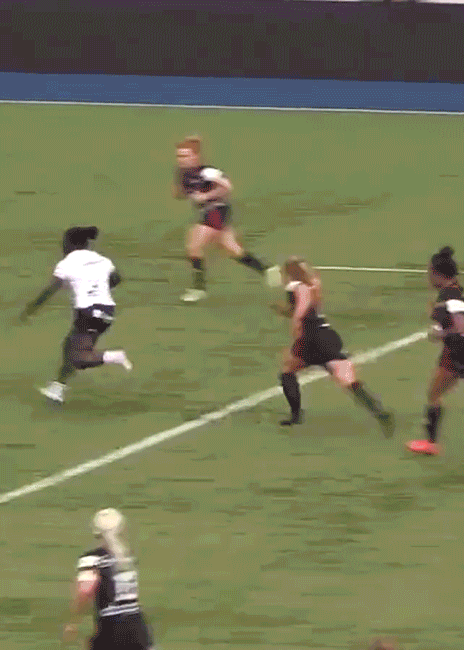
Whilst there are some sports, such as sprinting, that allow Black women to more comfortably wear any style that they choose (think of Shelly-Ann Fraser-Pryce and Sha’carri Richardson), there are other sports where the impact on our hair makes participation unappealing. Rugby is an especially tough sport to make appealing for Black women; the physicality of the sport means you cannot be worried about your hair on the pitch. You cannot be worrying that your wig will come off when you pack down for a scrum, or be hesitant to hit a ruck for fear of ruining your £200+ weave, or be worried about playing in the rain watching the design of your braids become frizzy.
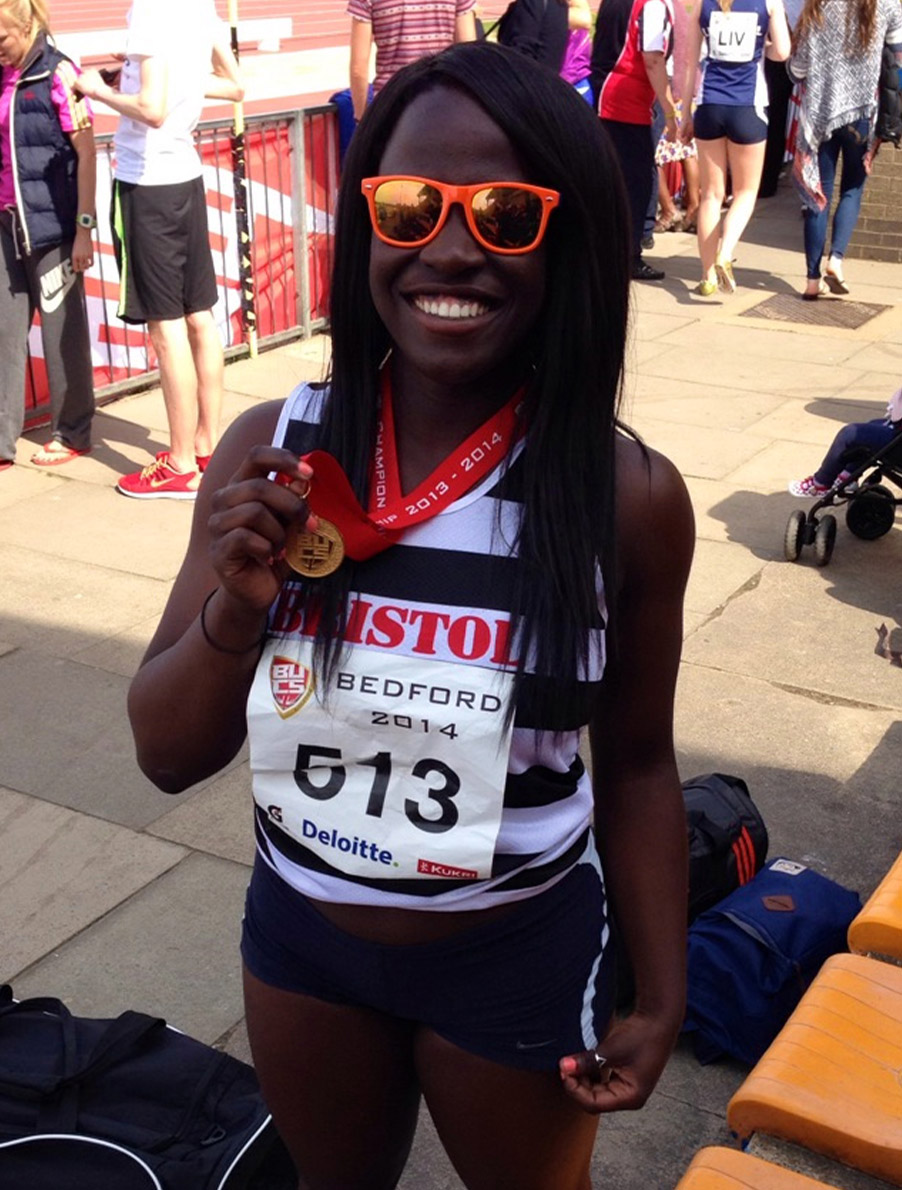
I’m not saying that Black women cannot play with these styles in place, but what I am saying is that hair is a more significant consideration for us than our white counterparts. As a Black woman, if you aren’t comfortable enough to play with your natural hair, then you will unfortunately have to spend a lot of time and money on your hair by having hairstyles done more frequently to ensure they look neat and presentable in society’s eyes. This increase in frequency of manipulation of our hair has both financial implications and increases the likelihood of damage to our natural hair, which in turn makes it harder to love and accept.
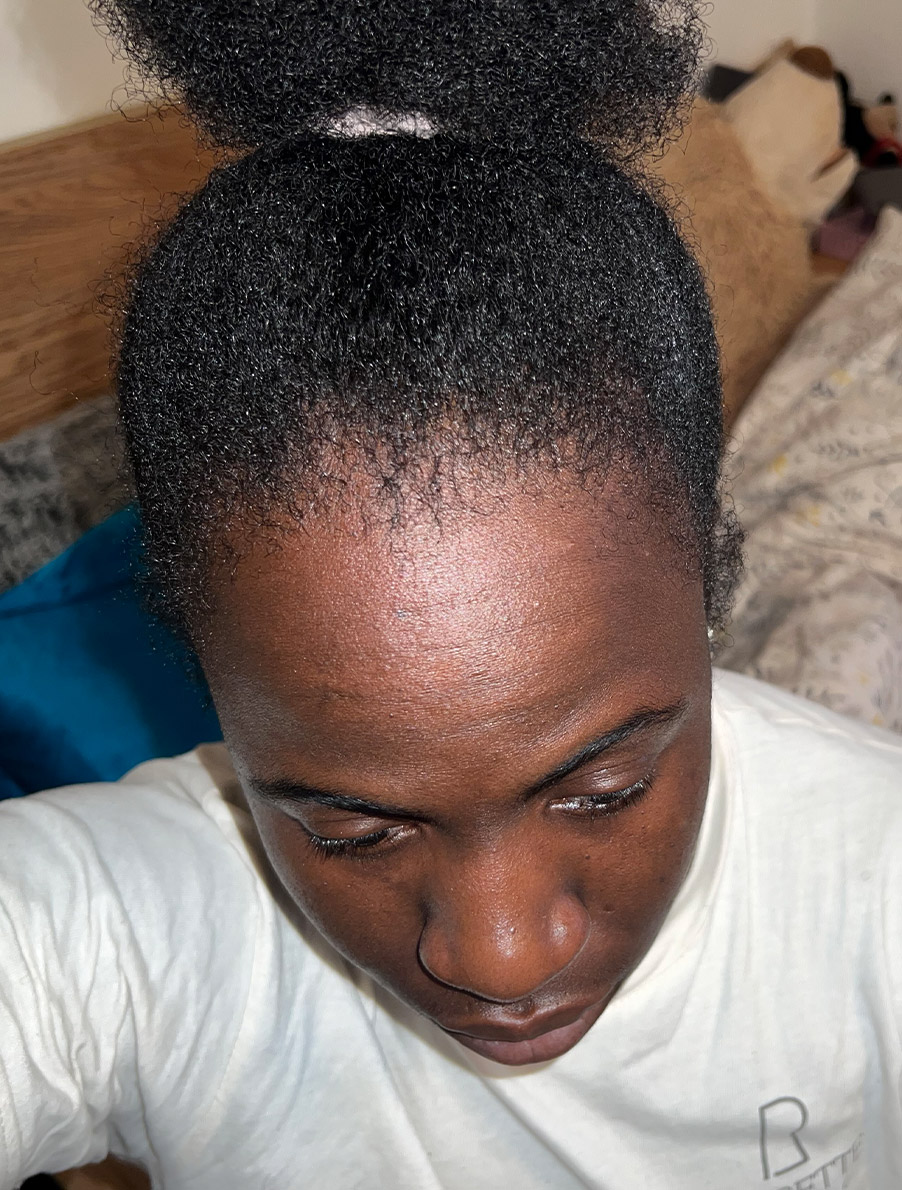
When I started playing rugby, I was wearing my hair mostly in its natural state, but as the frequency of my training and matches increased, I decided that the best way to style my hair on and off the pitch was to wear it in braids. Although this was convenient, the damage the braids were doing to my natural hair was significant. Healthy Black hair is afro-like in texture, but despite looking thick and strong it is quite fragile and brittle, even when cared for optimally. Because of this, a lot of Black women choose to wear their hair in protective styles (such as wigs, weaves, or braids) to minimise the damage to their natural hair through over manipulation and exposure to the elements. The catch 22 however is that some protective styles can cause more damage than good if kept in for too long or installed too tightly, and as a result, traction alopecia is common amongst Black women, showing up as thinning or bald patches on the scalp. This damage is exacerbated by wearing hair in a ponytail, which for most sportswomen is unavoidable. This is exactly what was happening to me, and therefore I have areas of significant thinning around the circumference of my hairline.
It is a vicious cycle that I got trapped into. I was braiding my hair tighter, smaller and more frequently to try and make my styles last as long as possible, and last to a standard to where I still felt my hairstyle looked good enough to wear going out. As soon as I felt my hair was too frizzy or not neat enough, I would get it redone. The frequency at which I was having my hair manipulated, combined with wearing it predominantly in a ponytail (for training, matches, and working in hospital) meant that there was an extraordinary amount of tension going through my strands. My hair was becoming damaged at the follicular level but also breaking in the strands and splitting at the ends.
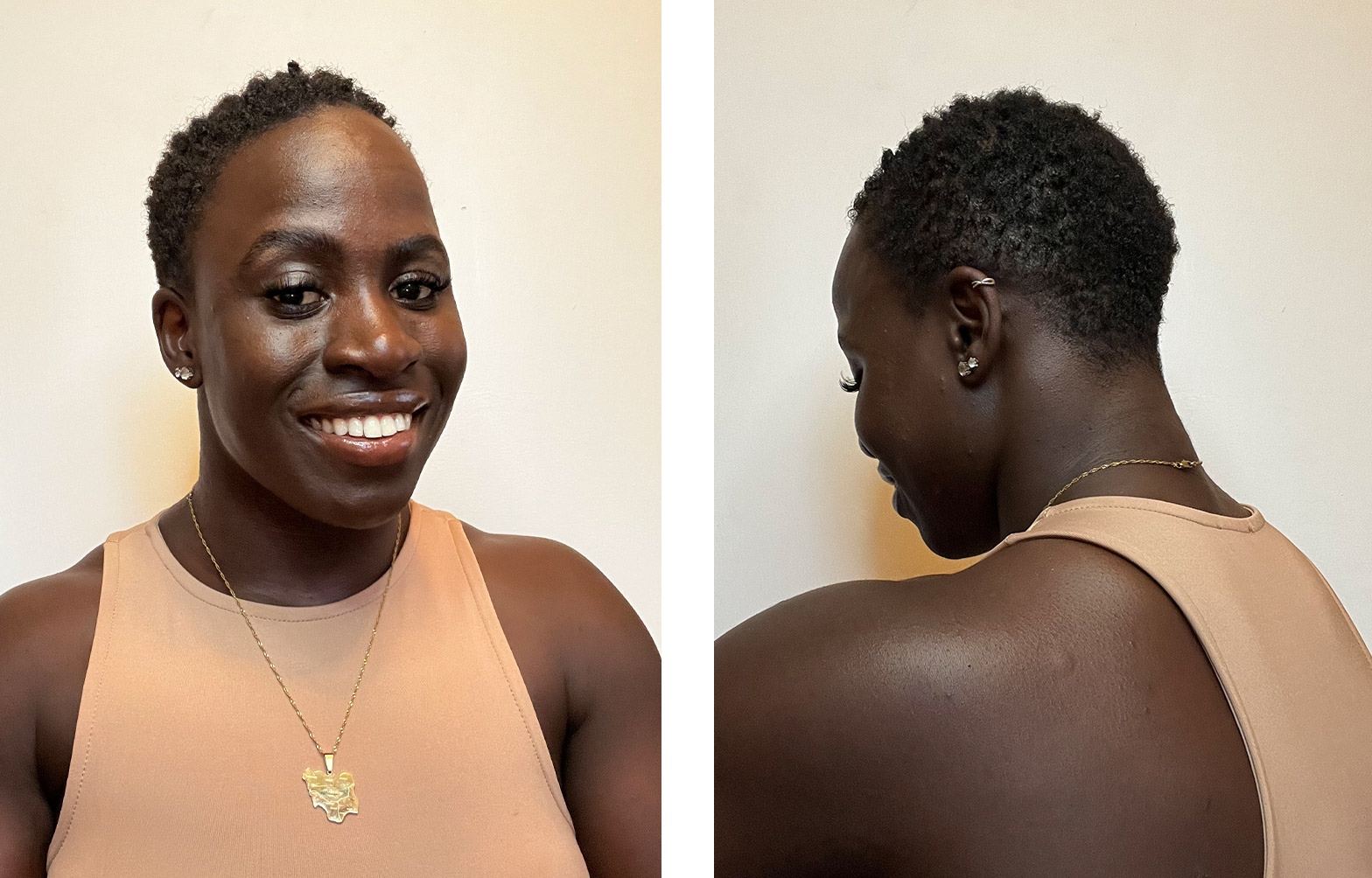
The photos I saw following our opening match of the season confirmed what I had known for a long time – my hair was irreparably damaged, and I needed to cut it off. I have no regrets about cutting it; I feel free and empowered and am enjoying the journey of learning to love my natural hair again. It was only after I cut my hair that I realised how much of a weight had been lifted off my shoulders. I am sure that my story is not unique, but I feel that this is an important topic that is not spoken about enough. Through the help of the Women’s Sport Trust’s Unlocked programme and my fantastic mentor Lisa Parfitt, co-founder of The Space Between agency, we are finding ways to have these discussions in a constructive way that can induce change. I am excited to see what comes of this in the future and am optimistic that we can change the climate for Black women who want to play any sport without having to choose between sport and their hair.
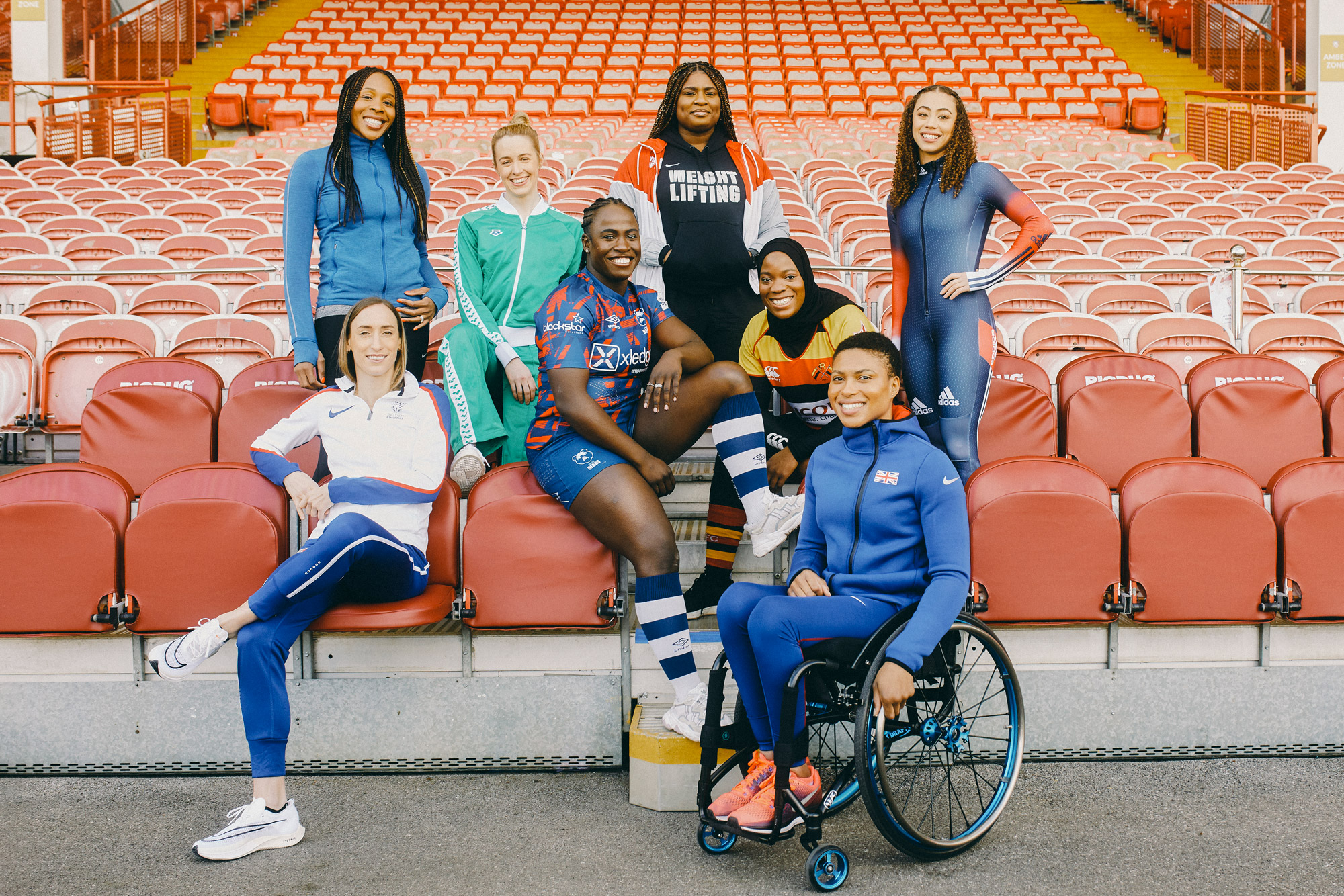
Editorial Design by this is root
Title image by Bristol Bears Women.
